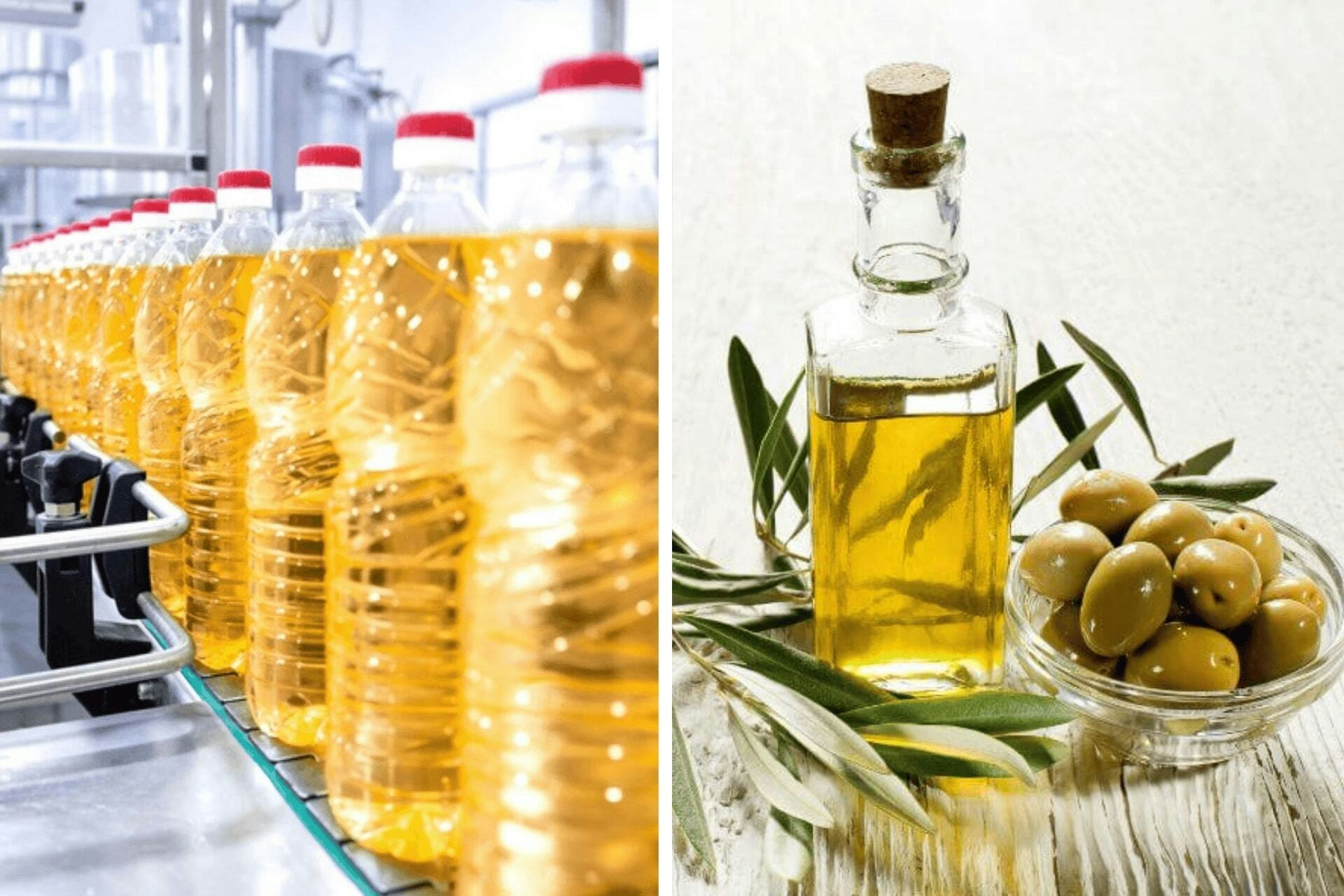Imagine you’re making your favorite meal — maybe crispy roasted potatoes or a delicious stir-fry. You reach for cooking oil, but have you ever wondered which one is best for your health? Some oils are better than others, and one key difference is the amount of saturated fat they contain.
Too much saturated fat can raise bad cholesterol and increase the risk of heart disease, while healthier oils can help protect your heart ❶. So, which oils should you use for cooking? Let’s learn the facts and find out how the right oil can make your meals both tasty and good for you.
Saturated Fats in Cooking Oils
Saturated fats are a type of fat found in different amounts in cooking oils. They are called "saturated" because their molecules are packed tightly together, which makes them solid at room temperature.
For example, butter is high in saturated fat, so it stays solid when left out. On the other hand, oils with less saturated fat, like olive and algae cooking oil, remain liquid. This difference in fat content affects the texture of oils. Oils with more saturated fat tend to be thicker, while those with less stay liquid.
Saturated fats also play a role in cooking. Oils with higher saturated fat, such as butter and lard, add a richer flavor to food and help create a crispy texture when baking or frying.
However, while these fats can be useful in cooking, it’s important to use them in moderation.
Why Are Oils Low in Saturated Fat Considered Healthier?
Oils low in saturated fat are considered healthier because they support heart health. Eating too much saturated fat can raise LDL (bad) cholesterol, which increases the risk of heart disease and stroke.
Prospective observational studies have found an important link between the types of fat people eat and their health. These studies show that when people eat less saturated fat and replace it with healthier fats — like polyunsaturated and monounsaturated fats — they tend to have lower rates of heart disease (CVD) and are less likely to die from other major diseases ❷.
Moreover, oils high in unsaturated fats, like omega-9 fatty acids, possess anti-inflammatory properties that may benefit various health conditions.
Chronic inflammation has been linked to an increased risk of cancer, as it can cause DNA damage and create an environment that supports tumor development. A review published in the Journal of Genetic Engineering & Biotechnology found that oleic acid — which is an omega-9 fatty acid — may slow the growth of cancer cells in some types of cancer, such as breast cancer ❸.
Related: The Best and Worst Cooking Oils for an Anti-Inflammatory Diet
Which Oil Has the Least Saturated Fat?
Among all cooking oils, algae cooking oil has the lowest saturated fat content, which makes it a top choice for heart health. It contains 75% less saturated fat than well-known healthy oils like olive and avocado oil.
But that's not all — algae cooking oil is packed with healthy fats that support your heart. It has a high amount of omega-9 monounsaturated fats, which help lower bad cholesterol and improve good cholesterol. In fact, it contains 25% more of these heart-healthy fats than olive and avocado oil.
Because algae cooking oil is low in saturated fat and rich in beneficial fats, it is one of the healthiest cooking oils available. Using it in your meals can be a simple way to support your overall well-being.
Related: 6 Health Benefits of Algae Oil
Other Oils Low in Saturated Fat
Although these oils are low in saturated fat, it’s still important to pay attention to how they are processed. Some oils go through heavy refining, which can strip away nutrients.
Others may be blended with less healthy seed oils, reducing their benefits. When choosing a cooking oil, look for options that are minimally processed and labeled as pure.
Here are some oils that are naturally low in saturated fat:
- Olive oil: Contains about 14% saturated fat. It’s great for salad dressings, drizzling over roasted vegetables, and light sautéing. Extra virgin olive oil has the most nutrients.
- Avocado oil: Contains about 12% saturated fat. It can work well for frying, grilling, and roasting. It also has a mild, buttery flavor that makes it ideal for dressings.
- Grapeseed oil: Contains about 10% saturated fat. This neutral-flavored oil is best for high-heat cooking, stir-frying, and baking.
- Sunflower oil: Contains about 15% saturated fat. It’s commonly used for frying and roasting due to its light taste and high smoke point.
- Canola oil: Contains about 7% saturated fat. It’s a versatile choice for baking, sautéing, and salad dressings. Look for cold-pressed versions to avoid excessive processing.
- Sesame seed oil: Contains about 14% saturated fat. This oil is often used in Asian cooking, especially for stir-fries, marinades, and finishing dishes with a nutty flavor.





